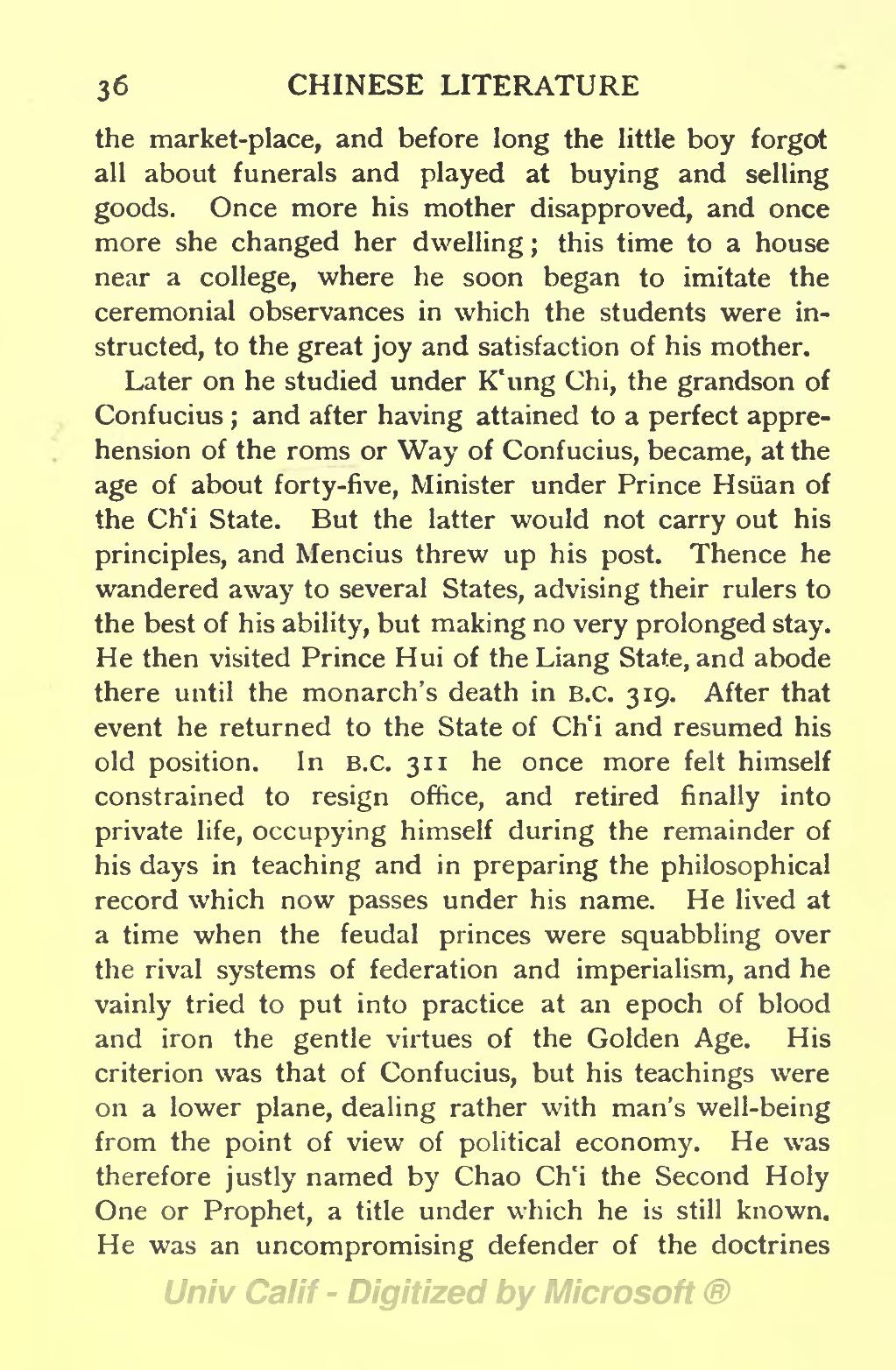the market-place, and before long the little boy forgot all about funerals and played at buying and selling goods. Once more his mother disapproved, and once more she changed her dwelling; this time to a house near a college, where he soon began to imitate the ceremonial observances in which the students were instructed, to the great joy and satisfaction of his mother.
Later on he studied under K'ung Chi, the grandson of Confucius; and after having attained to a perfect apprehension of the roms or Way of Confucius, became, at the age of about forty-five, Minister under Prince Hsüan of the Ch'i State. But the latter would not carry out his principles, and Mencius threw up his post. Thence he wandered away to several States, advising their rulers to the best of his ability, but making no very prolonged stay. He then visited Prince Hui of the Liang State, and abode there until the monarch's death in B.C. 319. After that event he returned to the State of Ch'i and resumed his old position. In B.C. 311 he once more felt himself constrained to resign office, and retired finally into private life, occupying himself during the remainder of his days in teaching and in preparing the philosophical record which now passes under his name. He lived at a time when the feudal princes were squabbling over the rival systems of federation and imperialism, and he vainly tried to put into practice at an epoch of blood and iron the gentle virtues of the Golden Age. His criterion was that of Confucius, but his teachings were on a lower plane, dealing rather with man's well-being from the point of view of political economy. He was therefore justly named by Chao Ch'i the Second Holy One or Prophet, a title under which he is still known. He was an uncompromising defender of the doctrines
